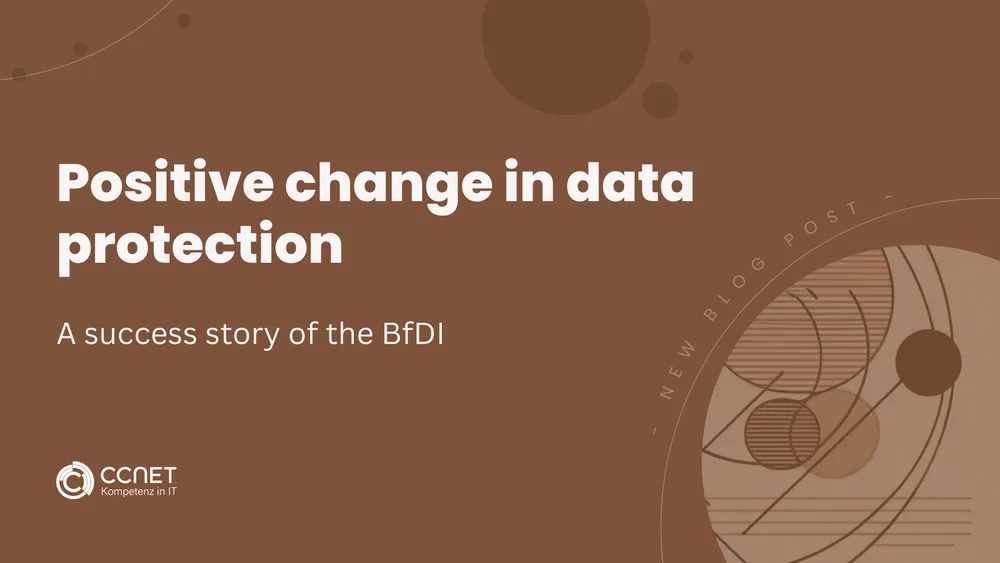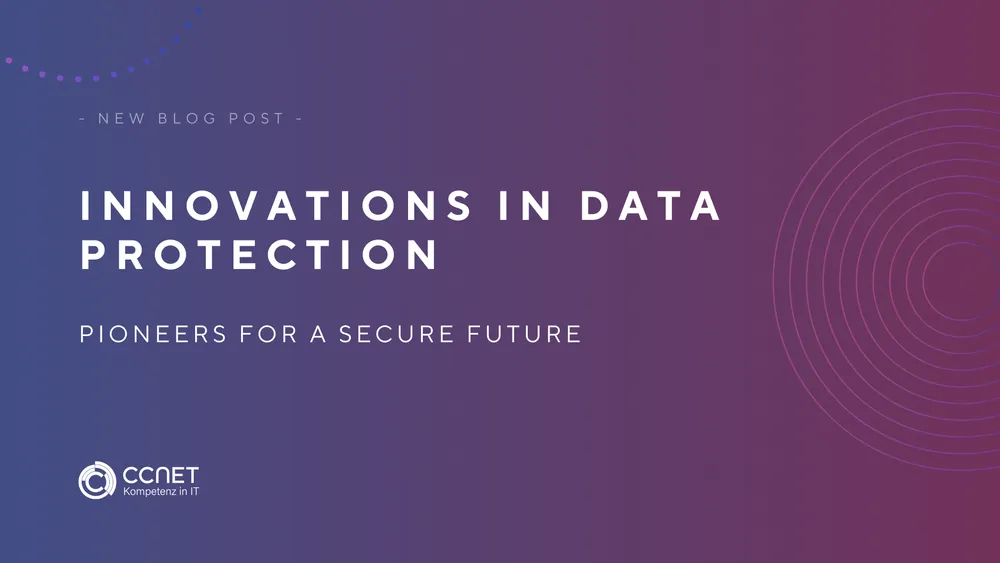
CCNet
Oct 16, 2024 • 3 min read

Digitalization and Data Protection - Opportunities and challenges of the OZG
The Online Access Act (OZG) is at the center of efforts to digitize public administration in Germany. The aim of the law is to offer citizens and businesses all digitizable administrative services electronically by the end of 2022, largely eliminating the often necessary "trip to the office." However, implementing this ambitious goal is proving to be a challenge, and the legislature has attempted to give new impetus to administrative digitization with the draft of an OZG Amendment Act, also known as "OZG 2.0."
Centralization of Citizen Accounts for BundID
A key point of OZG 2.0 is the centralization of citizen accounts for BundID, which aims to enable unified identification and authentication of citizens when using administrative services. However, this centralization poses the risk that online visits to authorities by almost the entire population could be tracked and analyzed. To address these risks, strict technical and organizational measures are required. The Federal Commissioner for Data Protection and Freedom of Information (BfDI) has announced that he will continue to closely monitor the implementation to protect the rights of citizens and the security of data processing.
Voluntary Use of Electronic Administrative Services
Another important aspect is the voluntary use of electronic administrative services. It is up to citizens whether they want to set up and use a citizen account. This underscores the need to offer alternative access routes to administrative services that do not require the use of a BundID. Therefore, the administration must enable the use of electronic services without a user account or with a simple basic registration when high identification and authentication are not required.
Challenges and Opportunities
The Online Access Act offers the opportunity to make administrative services more efficient, user-friendly, and accessible. At the same time, ensuring data protection and citizens' informational self-determination is a challenge. The centralization of citizen accounts and the need to ensure the voluntary use of electronic administrative services are central points that require special attention in the implementation of OZG 2.0.
The balance between digitization and data protection requires ongoing dialogue between legislators, data protection authorities, administrative authorities, and the public. Through collaboration and engagement of all stakeholders, the opportunities of digitization can be realized while safeguarding privacy and citizens' rights. The introduction and further development of the Online Access Act (OZG) and its update, known as OZG 2.0, is a crucial step toward digitizing public administration in Germany. These efforts offer both significant opportunities and challenges, especially regarding data protection and citizens' informational self-determination.
Data Protection in Focus
Protecting personal data and preserving privacy are central concerns in the context of digitizing administrative services. The centralization of citizen accounts for BundID raises questions about data security and the potential for abuse. It is essential to set and enforce high standards for data protection and data security. Data protection impact assessments and transparent communication about the use and storage of data are crucial to build trust in the administration's digital services.
Technical and Organizational Measures
To minimize data protection risks, technical and organizational measures are required. This includes developing secure IT infrastructures, ensuring data minimization, and implementing options for pseudonymous or anonymous use of services wherever possible. Additionally, strong encryption of data transmission is essential to ensure the protection of sensitive information.
User-Centricity and Accessibility
Digitizing administration offers the opportunity to improve the user-friendliness and accessibility of services. A user-centered approach that prioritizes the needs and preferences of citizens is essential. Providing clear information about the use of services, setting up support and counseling services, and ensuring accessibility are essential steps to enable all citizens to access digital administrative services.
The Role of BfDI
The Federal Commissioner for Data Protection and Freedom of Information (BfDI) plays a crucial role in monitoring and accompanying the implementation of the OZG. By advising authorities and reviewing compliance with data protection regulations, the BfDI contributes to protecting citizens' rights and increasing transparency in data processing.
Conclusion
The Online Access Act is a groundbreaking project that can fundamentally change the interaction between citizens, businesses, and the administration in Germany. However, the challenges regarding data protection and citizens' informational self-determination should not be underestimated. Careful planning, involvement of data protection experts, and ongoing assessment of risks and opportunities are necessary to realize a secure and inclusive digital administration. Continuous collaboration among all stakeholders is key to harnessing the potentials of digitalization while preserving the fundamental rights of citizens.


